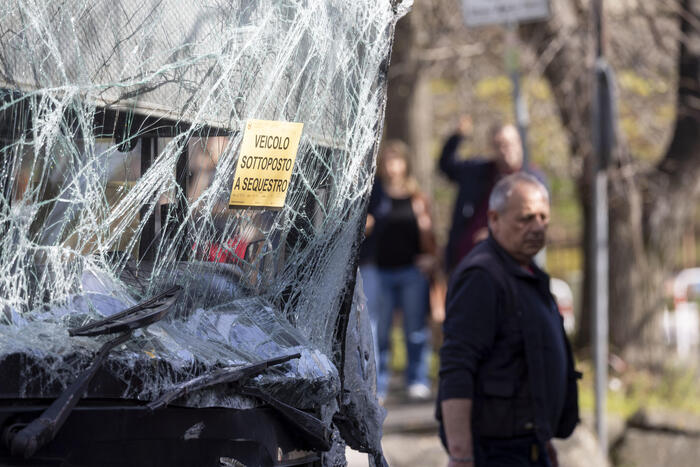Private cars will eventually be a relic. Traffic researcher Harald Kipke is certain of this. (Symbolic image: dpa) © Matthias Balk/dpa
Transport researchers are convinced of a world without private cars. Two scientists explain their assessment of the future of private cars, especially in rural areas.
Nuremberg/Munich – At some point, the private car will only be a relic. Harald Kipke from the Technical University of Nuremberg is convinced of this. The transport researcher believes in a world without private cars, even if this will take some time and require a great deal of effort.
As BR24 reports, for Kipke, the traffic turnaround means not only doing without the car in the city. The mobility researcher is concentrating primarily on rural regions, because public transport in cities such as Munich, Nuremberg or Augsburg is already very good.
Traffic turnaround in rural regions: Transport researcher in Nuremberg relies on system with express bus lines
In rural areas, residents are currently dependent on a car. Here, Kipke sees the future in a system of tightly timed express bus lines. Although the rail network in Germany has hardly been expanded in recent years, roads are available everywhere.
For this reason, the researcher can well imagine the express bus system, according to the BR24 report. However, these should not go to the small villages, but to the conurbations or larger train stations as quickly as possible.
After all, small towns are rarely removed from big roads, says Kipke. The distance to the next stop can therefore be covered on foot, by bike or in a minibus organized by the municipality. The scientist thinks that if the offer is right, people are willing to do it.
World without private cars: Energy consumption of the express bus system compared to own vehicles
As BR24 reports, Kipke from the Technical University of Nuremberg has calculated the energy requirements of his express bus system for the whole of Germany. It assumes a 30-minute interval, a 15-minute interval at peak times and a 60-minute interval at night.
This means that Kipke has an additional energy consumption of a good 70 petajoules per year. That's 70 quadrillion joules (joule is a unit of measurement for energy and refers to the energy expenditure to perform one watt of power for one second) and thus roughly corresponds to the energy consumption of all bus journeys and all rail-bound passenger transport in Germany. In comparison, the energy consumption of motorized private transport – i.e. cars and motorcycles – is more than 1500 petajoules per year.
0
Also Read
Turning point in a terrible fire: young people are said to have set fire to a man at a maypole watch
READ
Hiker photographed bear in the Allgäu: Shepherd with great worries - "I can't sleep"
READ
16 must-see places in Bavaria
READ
Alpine tourists from North Rhine-Westphalia make an emergency call – after dramatic helicopter operation, complaint about rescuers follows
READ
Now the bear is in the Oberallgäu
READ
Fancy a voyage of discovery?
My Area
(By the way: Our Bavaria newsletter informs you about all the important stories from the Free State. Sign up here.)
Mobility researcher in Munich focuses on on-demand transport with autonomous vehicles
Mobility researcher Klaus Bogenberger from the Technical University of Munich is also looking at the future of private cars and public transport. Unlike Harald Kipke, he has high hopes for automation. After all, the biggest cost factor in public transport is the staff, especially drivers of buses, trams and trains. In addition, there would be a shortage of up to 90,000 bus drivers throughout Germany – also a problem with the expansion of public transport.
Autonomous vehicles would not only save enormous costs, but would also be more reliable – Bogenberger is convinced of this, according to BR24. The mobility researcher also does not believe in private cars, in this case his own autonomous cars. Bogenberger believes in an offer in which people can be picked up at home by a computer-controlled vehicle and taken to their destination.
Kipke, on the other hand, is not convinced of such nationwide on-demand transport, because here people would only switch from their own cars to another small vehicle. In addition, the empty runs that would then be necessary to pick up passengers would neither relieve the burden on the roads nor improve the CO2 balance.
Even though the two researchers agree that private cars will play an increasingly smaller role in the future, much is still uncertain about the future of public transport. (lea)













